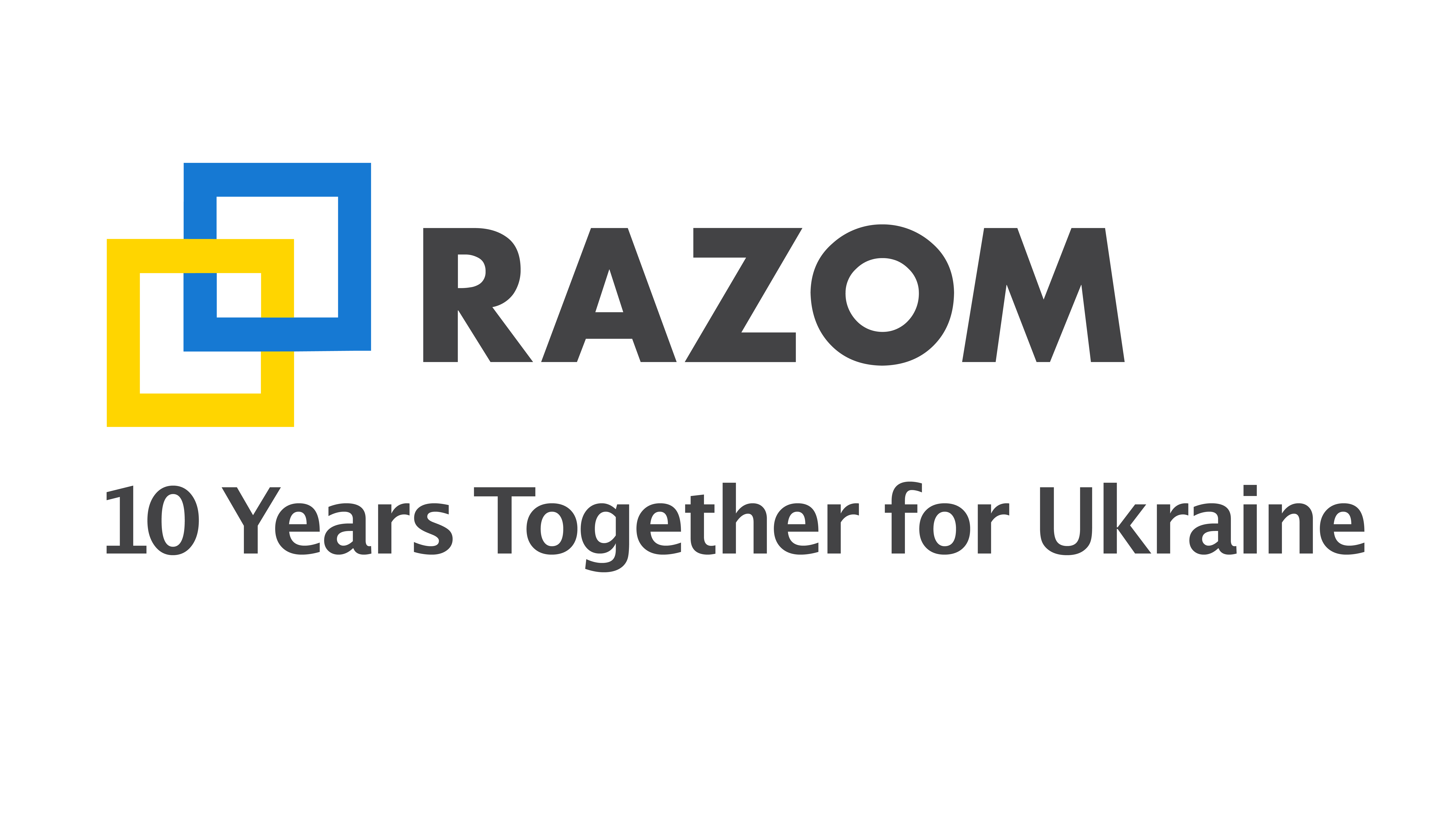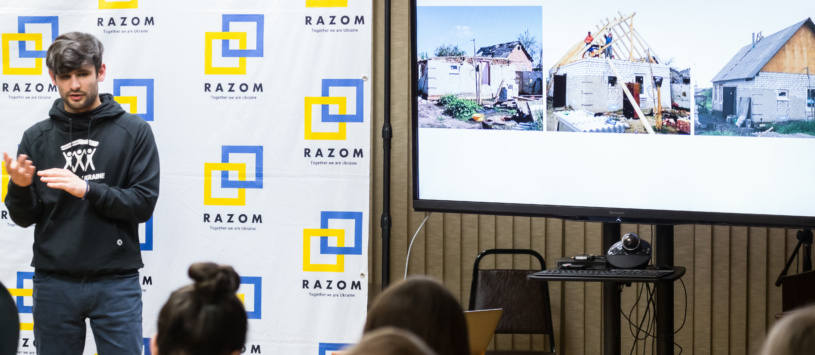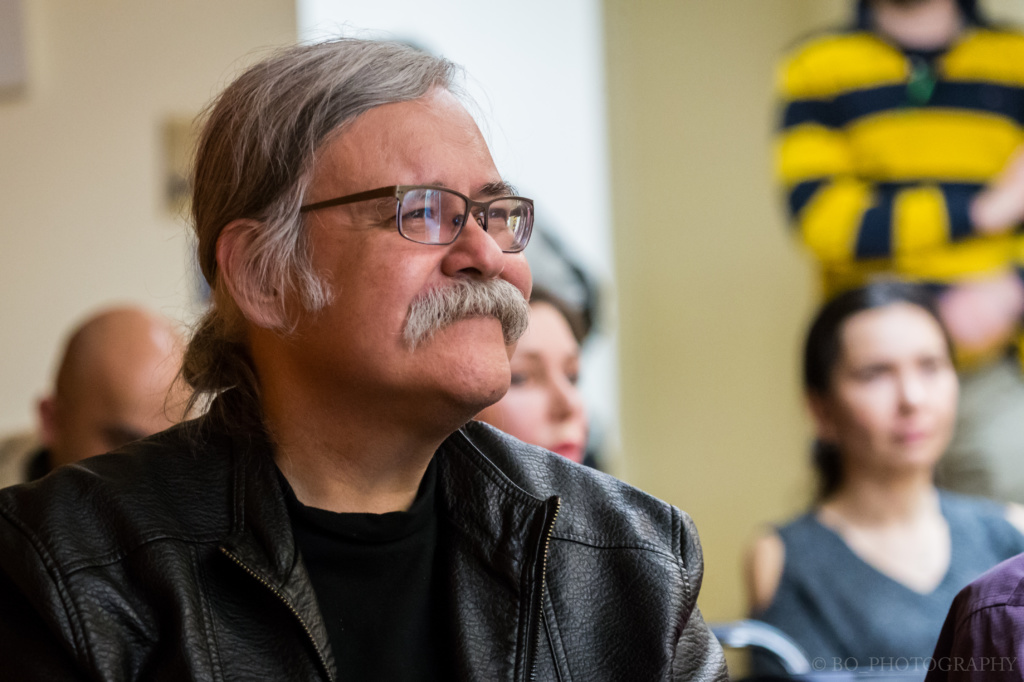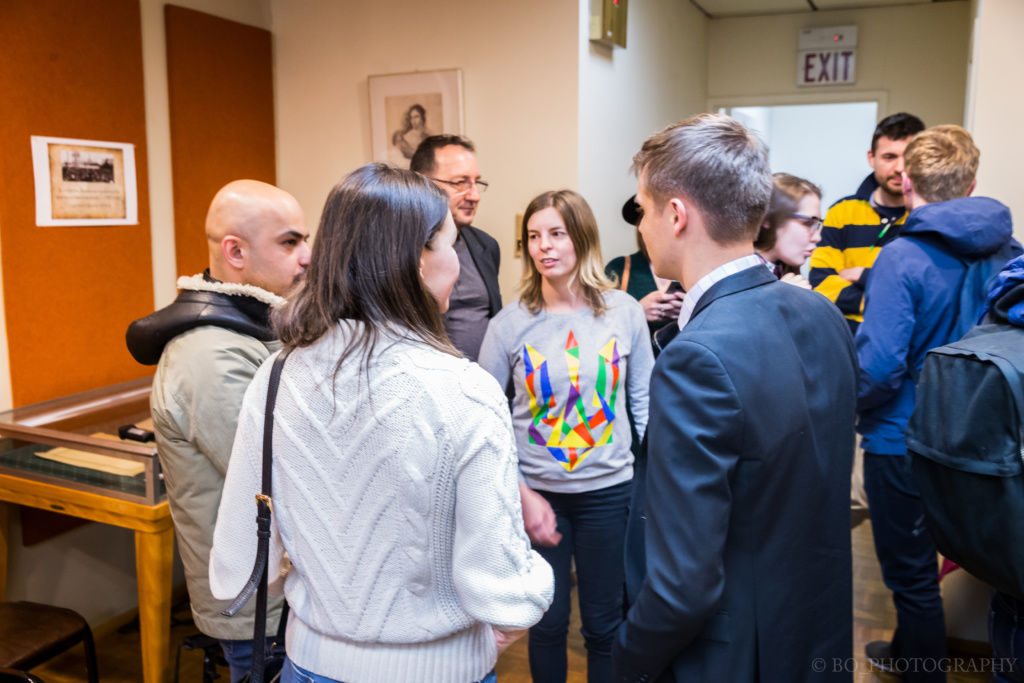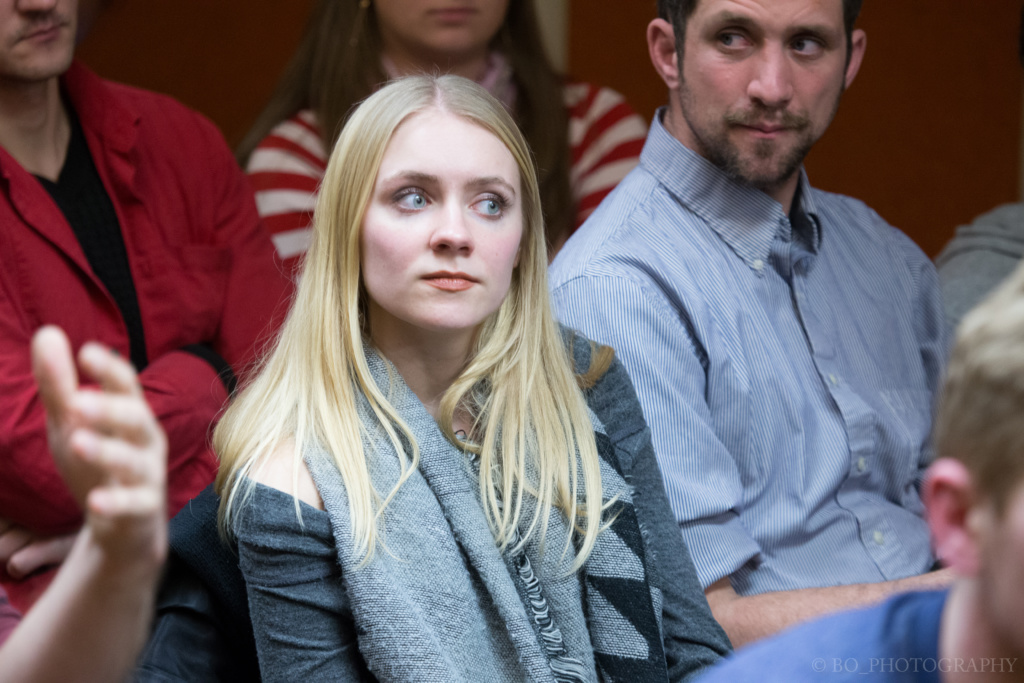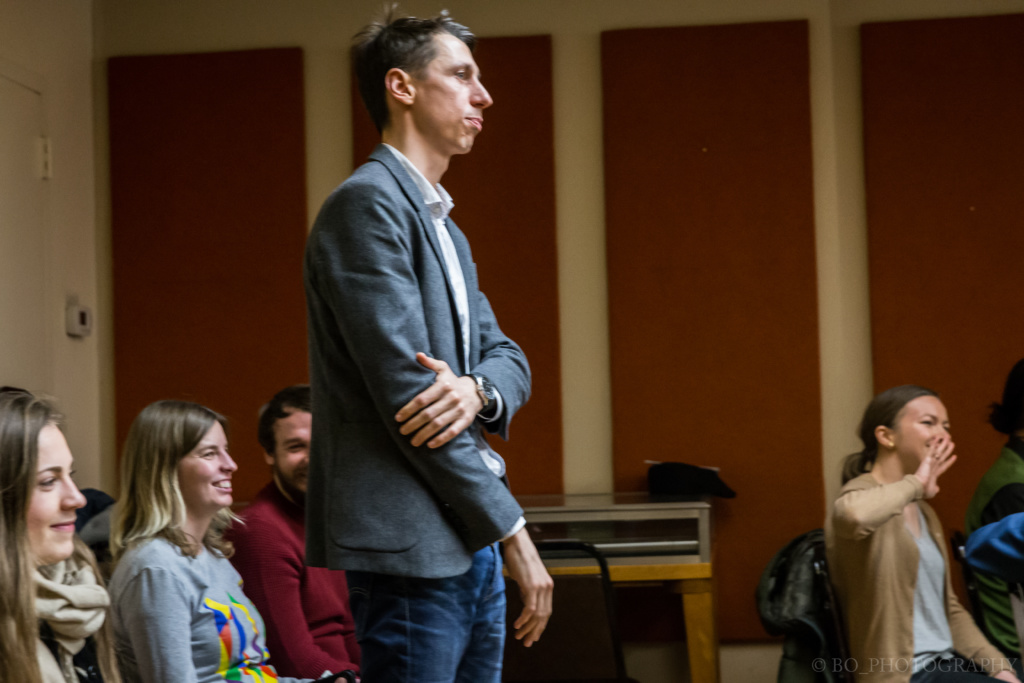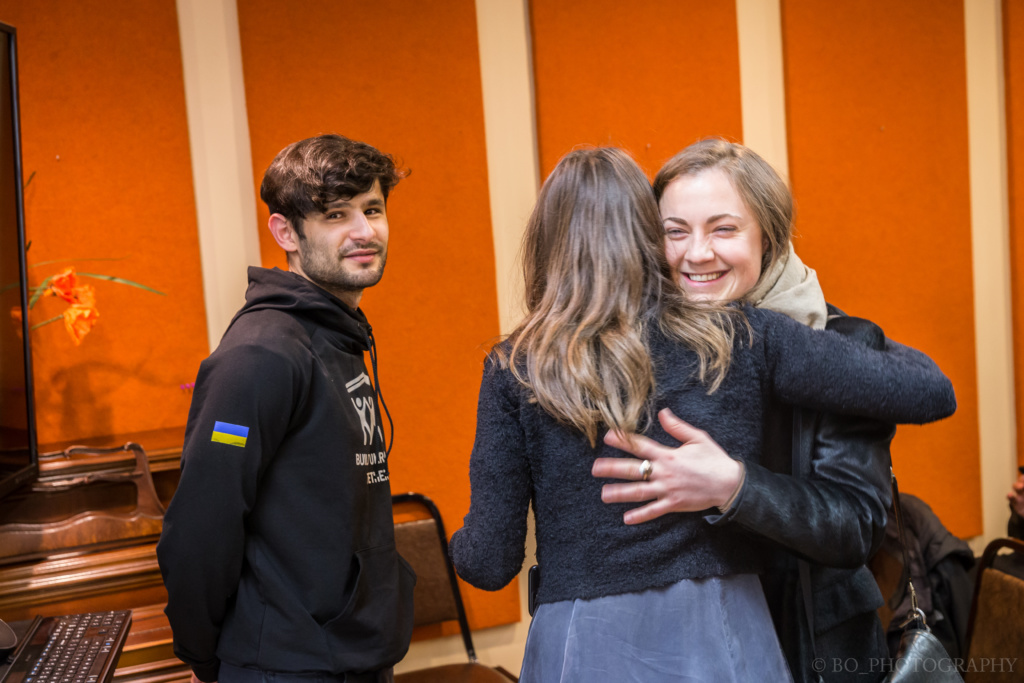by Rebecca McGory, Building Ukraine Together volunteer
The evening of February 22nd, Razom hosted an event to promote grassroots initiatives in Ukraine and turned the podium over to Yuriy Didula, one of the founders of Будуємо Україну Разом (БУР) or “Building Ukraine Together” (BUR).
BUR is a rapidly expanding ground organization that has seen wide-scale domestic involvement in the years since its inception, and even some international participation. It serves to build (or, in many cases, rebuild) homes and community centers for cities around Ukraine that are in need of youth activation, structural repairs, and a feeling of connection and purpose with the rest of the country in the wake of the Maidan revolution that left a significant portion of Ukraine uncertain about its status with the rest of the country.

As presented, BUR is a unifying, progressive example of what citizens can do to bridge the divide among them during difficult economic or political times, and even more-so, it is an incredible opportunity for absolute strangers to work, sweat, laugh, and love alongside each other and forge lifelong relationships in, sometimes, the span of only a week. I would know – I volunteered with Yuriy and BUR last summer.

Yuriy – or Yurko to anyone who has met him – began the presentation with an overview of the background and humble beginnings of the current initiative. BUR, he explained, did not start out intending to do construction work; it was originally a sort of visitation program that sought to reunite the youth of eastern Ukraine with western Ukraine by inviting them to Lviv, where they would be made to feel at home and at peace with the more metropolitan side of the country that the vast majority of them (and their parents) had never seen. It was when a friend of his contacted him to express that the city of Svatove, Lugansk oblast (eastern Ukraine) had taken serious damage in the war with Russia that Yurko and others decided to visit and help rebuild a house.
Particularly striking was his description of their first day, when the locals would hardly acknowledge their team out of fear and mistrust; having been fed propaganda about the new government and the revolution itself, many people of eastern Ukraine considered the appearance of westerners to be a threat. But in the short time that they were there, as the BUR team took on the responsibility of correcting these narratives and expressing a desire for peace and friendship, the entire mood changed. Distrust converted into people who had been strangers mere days earlier inviting Yurko and his friends into their houses for varenyky and drinks.
One project turned into more, a weekend turned into weeks, and very soon BUR had expanded into an organization focused on fostering relations between the east and west by working for mutual benefit and, as a single unified national entity, beginning the long road to repair the physical and social damage inflicted by the conflict.

In the years since, BUR has widened its horizons even further. The organization no longer focuses exclusively on eastern Ukraine and instead travels all across Ukraine, doing its work to build homes for those in need and community projects (including 18 youth centers) for entire cities to benefit from. It is limited in its reach due only to funding, as many donors are mostly interested in contributing to efforts exclusively in the east. But this has not stopped them from seeking alternative sources of income and pushing to genuinely unite and benefit all of Ukraine, a narrative that is growing in popularity and effectiveness.
Likewise, volunteers often travel hours by train to join fellow strangers in these rebuilding efforts. In the two cities that I volunteered in last year, Konotop and Svitlovodsk – both closer to central Ukraine – there was a distinct mixture of local volunteers and volunteers that had traveled as far as Lviv on one side and cities of Donetsk and Lugansk on the other. This togetherness is exactly the type of environment that BUR creates, maintains, and encourages – with Yurko at its forefront, providing an example to the rest of us.
While volunteering, all non-locals (and even some locals, by choice) live together and participate in various cultural excursions after the workday ends. We visited local museums and factories, and on days we stayed at camp, BUR invited speakers to come and relate their stories and experiences to all of us for an evening.
It would be easy to think that international volunteers would feel out of place in such a core-deep Ukrainian organization, but that presumption is wrong. Those volunteers who could speak English – at varying levels of proficiency, from fluent to working hard – unfailingly made their way around the group to whisper translations into our ears and make sure that we felt welcome and included. Campfires, music and communal swims are all tiny aspects of how BUR has managed to turn manual labor in the dead heat of summer into a purpose-driven, fun experience. And others are catching wind, too. Yurko’s presentation explained that they have had more than 1,000 volunteers total as of 2017, and in addition to our group of Americans two years in a row now, international homelands include Germany, the Netherlands, and even Russia.
We watched two videos during the presentation – collections that interviewed local volunteers, volunteers that traveled from other cities, and city locals/recipients of the reconstruction. The overwhelming theme of appreciation for the experience served as a stark reminder that volunteers often find themselves to be the beneficiaries of their own work.
In addition to the construction efforts, BUR has also started a new initiative called BURLab, a program for approved volunteers with their own ideas to get together in teams and perform trust-building activities while developing their business or organization concepts. Grants are awarded to the top ideas presented at the end of the program – last year’s winners included a tea company and even a team from Belarus that has essentially created a Belarusian BUR to try to combat some of their own societal needs.
After the presentation, the group of spectators and staff enjoyed a social hour at a local bar, capturing the precise essence of friendship that BUR and Razom foster in each other and those they reach out to.
BUR’s staff members have identified a lack in Ukrainian society: a link that would bring eastern and western Ukraine together for the purpose of improving and rebuilding their beautiful country. It is awe-inspiring to watch them tackle that lack, and the humble demonstration given by Yurko genuinely encompassed the affectionate climate of BUR projects.
The impact in its short four years of life has been massive. Yurko is now seeking further funding to allow the organization to expand more efficiently and increase the amount of ground they can cover each year.
At the end of the presentation, a second speaker made a surprise appearance: Mustafa Nayyem, the journalist credited for igniting the Maidan revolution after his coverage and call-to-action piece that led to thousands joining the movement. He is now a member of parliament and has spearheaded his own movement unite Ukraine to the rest of the world: a non-profit English-teaching initiative called “Global Office” that brings foreign teachers to small cities throughout Ukraine for periods of two weeks or more to provide native education to the schools there.
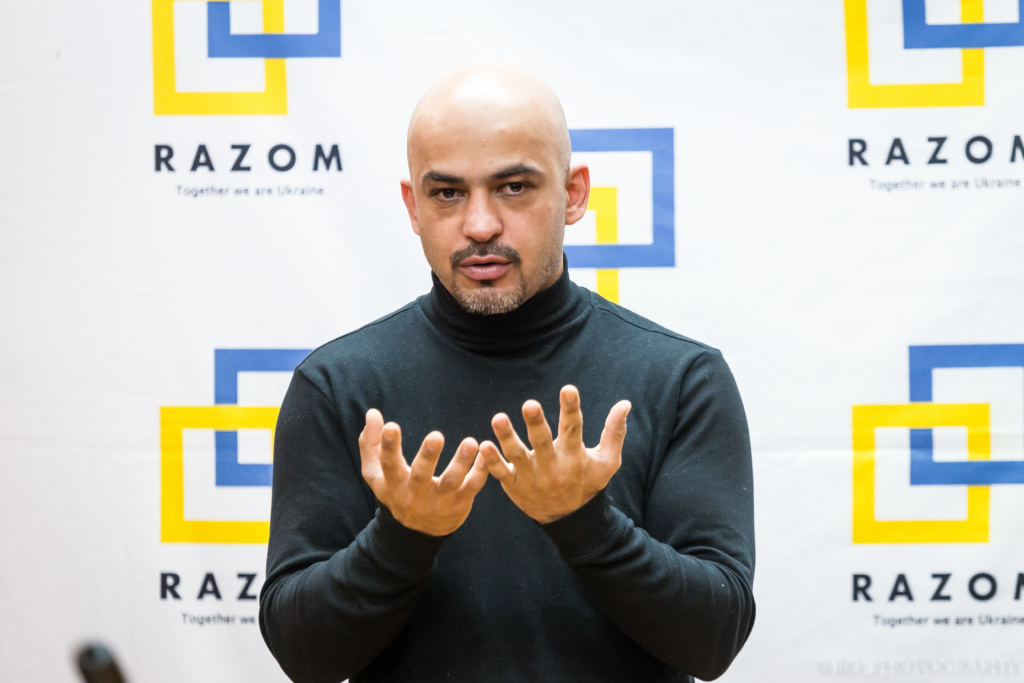
While participating in the program, volunteers live with a Ukrainian family and experience all of the cultural integrity of small-city Ukraine up close, often learning as much as they teach. Nayyem, too, is seeking both funding and volunteers to aid the effort.
You can watch the recorded Livestream of the presentation on Razom’s Facebook page here.
To learn more about BUR or donate via Razom, click here.
Photos by Bogdan Grytsiv.
